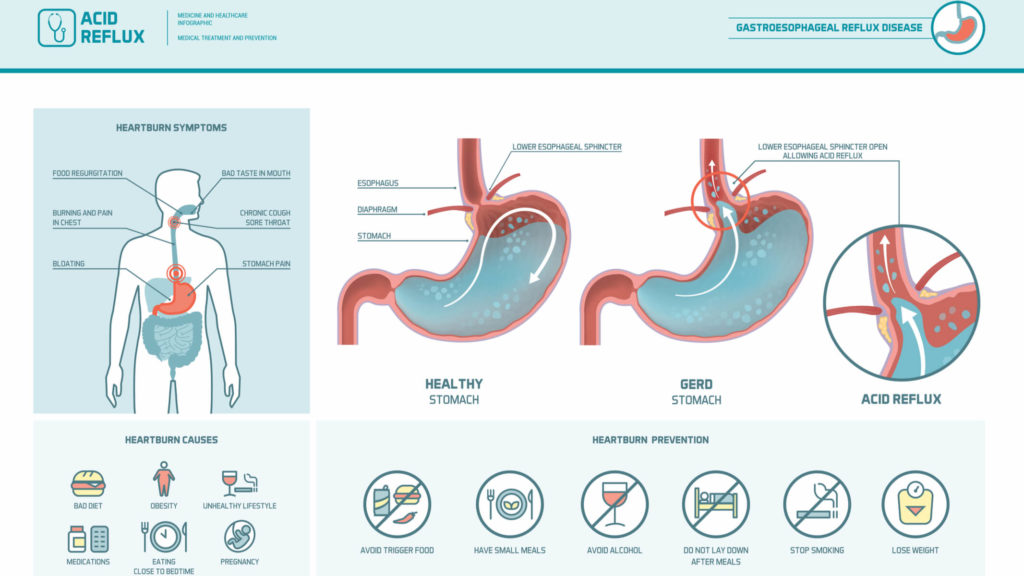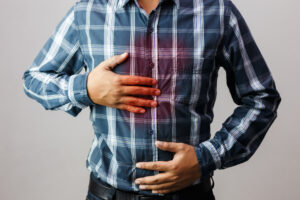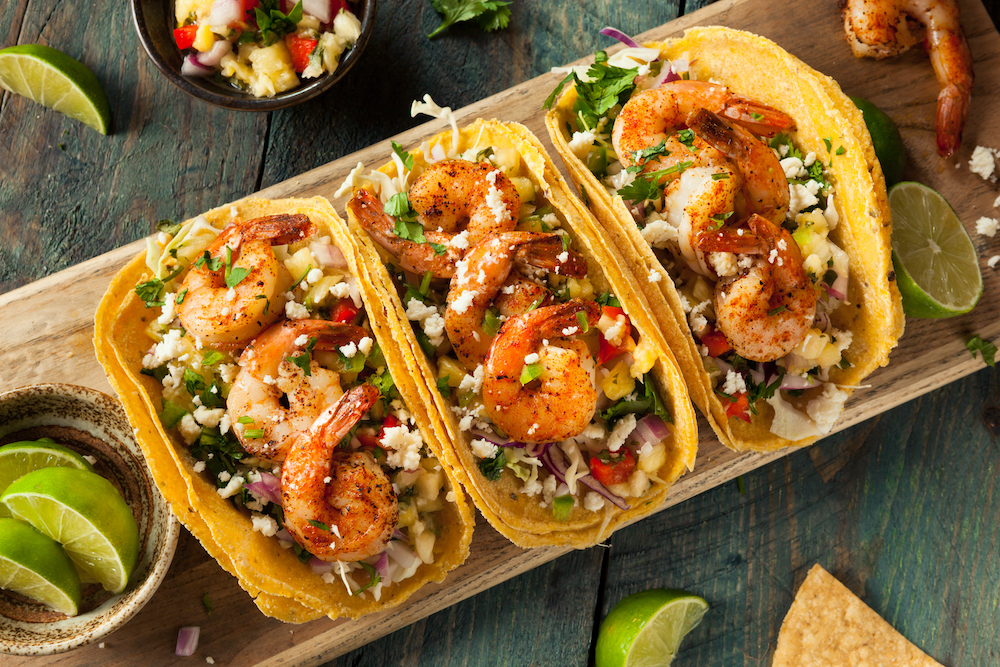If you’re one of the millions of people suffering from GERD (gastroesophageal reflux disease) or acid reflux, you know how uncomfortable and even painful it can be. But did you know that certain foods can make your symptoms even worse?
If you are tired of dealing with the uncomfortable symptoms of GERD and acid reflux or are just searching for ways to better manage the gastrointestinal condition, keep reading!
In this article, we’ll take a closer look at the foods to avoid if you want to keep your symptoms under control and how making these few simple changes to your diet can help you feel better and live a healthier life.
WHAT IS GERD?
If you’re experiencing chronic heartburn symptoms, you may have acid reflux disease or gastroesophageal reflux disease (GERD). While neither GERD nor acid reflux are life-threatening diseases, they are life-changing. In honor of World Health Day this month, let’s talk about how to manage the symptoms that come with GERD and acid reflux disease.
Both diseases can affect eating and sleeping habits. Some people even develop an intolerance for certain foods that cause symptoms to flare up. The good news is that you can better manage your symptoms if you know which foods to avoid with acid reflux.
Acidic Foods Cause GERD Symptoms
Certain foods have high levels of natural acid. In cooking, these acidic foods are used to lighten up otherwise fat-heavy dishes. Acids also work as a natural tenderizer when applied to meats. When cooked, these foods help flavor the entire dish for delicious results.
However, acidic foods tend to irritate the esophagus when consumed on an empty stomach and lead to heartburn or acid reflux symptoms. You may experience symptoms like upper abdominal or chest pain, trouble swallowing, a lump in your throat, backwash of sour liquid, a burning sensation in our chest, belching, nausea, and even shortness of breath.
Some triggering acidic foods include fruits, vegetables, and spices like:
- Garlic
- Onions
- Tomatoes
Foods that use tomatoes in sauces are another culprit for acid reflux symptoms. Pizza, pasta, chili, stews, soups, and spaghetti tend to cause acid reflux since they include all three of these ingredients.
Citrus fruits are another type of highly acidic food. If you want to avoid triggering GERD or acid reflux, you should avoid the following:
- Grapefruit
- Lemons
- Limes
- Oranges
- Pineapple
Keep in mind that these foods do not directly cause GERD but often cause acid reflux and heartburn symptoms. Many of these foods are good for your general health, but when eaten excessively or on a mostly empty stomach, they can cause problems.
HIGH FAT FOODS & GERD SYMPTOMS
When fat enters the stomach, it triggers a release of the hormone cholecystokinin (CCK), which can cause the lower esophageal sphincter (LES) to relax. Chronic relaxing or malfunctioning of the LES is what causes GERD. With the LES left more open, the stomach contents can reflux back up the esophagus and cause discomfort.

The other problem with high-fat foods is they require more time to break down during digestion. To help the digestive process, the CCK hormone keeps fatty foods in the stomach for extended periods. This is a natural reaction, but when combined with the relaxed LES, the risk of acid reflux symptoms increases.
Below is a list of several high-fat foods you should avoid when managing acid reflux or GERD symptoms.
Dairy
- Whole-fat or 2% milk
- Cream cheese
- Ice cream
- Cheese
- Full fat sour cream
- Creamy salad dressing (ranch flavored)
- Creamy soups
- Pudding
- Creamed vegetables
Meats
- Bacon
- Sirloin
- Prime rib
- Chicken skin
- Bologna
- Sausage
- Fatty meats
Spreads
- Butter
- Mayonnaise
- Fatty sauces and dips
Snacks
- Fried food
- Chocolate
- Potato chips
Fried foods are especially bad due to their high levels of saturated fat. You should not eliminate all fats from your diet because your body does need fat to work properly. Some healthy sources of fat include avocados, nuts, and olive oil.
You may have noticed that milk is on this list. While it is true that milk can temporarily subdue stomach acid and relieve heartburn, the fat in milk can stimulate the production of more acid in your stomach. If you want to drink milk, consume fat-free milk in low quantities.
While you do not have to eliminate all of these foods from your diet immediately, the more you can limit and monitor fatty foods, the better. Paying attention to your fat intake will also help you avoid future health problems like obesity, heart disease, and cancer.
SPICY FOODS
While there is not necessarily a direct medical cause between spicy foods and symptoms of GERD, people who experience acid reflux and heartburn often blame spicy food. What we have yet to mention is the link between acid reflux and the kind of food a person eats depends on the individual.
Some people may experience fewer heartburn symptoms with spicy, acidic, or fatty foods than others. If spicy food does trigger acid reflux for you, then you should avoid spicy foods such as:
- Black pepper
- Chili
- Curry
- Tajin
- Hot peppers (jalapenos, habaneros)
- Salsa
OTHER FOODS/DRINKS
MINTY FOODS
You might have heard that mint can settle an upset stomach. In some instances, this is true, but the opposite is true for GERD. Minty candies and foods like peppermint may increase your chances of symptoms because the same peppermint side effect that helps soothe an upset stomach also relaxes the lower esophageal sphincter (LES) that sits between the stomach and esophagus. This allows stomach acids to flow back into the esophagus. So, it’s best to avoid peppermint and spearmint with acid reflux.
ALCOHOL
Just as fatty foods and mint cause the LES to relax, alcohol use can do the same. However, some people will do better with alcohol use and heartburn than others. Also, certain types of alcohol can create more stomach acid and increase the risk of acid reflux. Occasional alcohol use usually will not increase your symptoms, but frequent or constant use will. If you use alcohol excessively or compulsively, it can damage your esophagus and cause more pain during reflux.
COFFEE
While the exact reason why coffee causes acid reflux is under debate, the fact is that some people experience reflux after drinking coffee. Some studies show that drinking coffee relaxes the LES. Other studies say that caffeine causes acid reflux since caffeine relaxes smooth muscle in the digestive tract. And other studies still show no correlation. Either way, if you notice that coffee gives you acid reflux, try cutting it out of your diet and finding an alternative.
Carbonated Beverages
Soft drinks not only relax the LES but also increase stomach acid levels. This may be due to the caffeine in popular cola products which can affect the LES and trigger acid reflux.
Tea
Due to the debate about caffeine causing GERD or acid reflux symptoms, it may be worth avoiding certain types of tea. Black, white, and green teas are natural sources of caffeine and may increase your risk of symptoms.
There is an exception. Decaffeinated herbal teas may help you manage symptoms of GERD and acid reflux. However, remember what we said about mint if you use herbal tea. Avoid mint-based teas. Mint, peppermint, spearmint, and other mints can increase your risk for symptoms.
Regardless of what you eat, you might also want to avoid eating two to three hours before you go to bed, as laying down can cause the acid in the stomach to leak out into the esophagus, causing reflux.
HOW CAN I PREVENT MY SYMPTOMS OF GERD?
As you can see, there are many foods to avoid if you have GERD or acid reflux disease. However, you may or may not experience symptoms after eating one of these foods, as each case is different. This list of foods is meant to give you general guidelines of foods to avoid.
That said, the most reliable way to know which foods you should avoid is to keep a food journal. Pay attention to what you eat, then record whether or not you experience symptoms after.
You should also pay attention to which situations lead to your symptoms. For instance, do you experience symptoms in the morning before eating or after a large lunch? Or, perhaps you notice symptoms at night after eating a late dinner or dessert. Also, you can try eating four to five smaller meals throughout the day instead of two to three large meals.
Talk with your doctor if you have more questions about preventing GERD or acid reflux symptoms. Depending on the severity of your symptoms, your doctor may give you a prescription to help soothe your heartburn.
Prescriptions usually include histamine-2 blockers (H2), proton pump inhibitors (PPI), and promotility agents. These are typically short-term prescriptions for acid reflux treatment while you make dietary adjustments.
FOODS TO EAT That Help Heartburn
We know that is a long list of foods you might want to avoid, so we thought we would give you a list of foods that can potentially do the opposite and help manage symptoms of acid reflux. The foods below have anti-inflammatory properties and are alkaline.
Of course, none of these foods will cure GERD, but they might help if you have too much stomach acid and inflammation.
- Ginger
- Turmeric
- Fennel
- Brown Rice
- Oatmeal
- Non-citrus fruits
- Mild Green Vegetables (lettuce, green beans, celery, sweet peppers, etc.)
- Lean meats and seafood
- Egg whites (limit yolks due to fat content)
- Healthy fats (flaxseed, avocado, etc.)

WHEN TO SEE A GENERAL SURGEON
Because GERD and acid reflux are not usually serious conditions, managing them on your own is possible. However, if these conditions do not improve, they can lead to esophagus cancer.
If you notice that your symptoms keep getting worse, then it is time to see a doctor.
Other warning signs for severe GERD and acid reflux include chest pain, jaw pain, or arm pain. Also, if you experience shortness of breath, you should visit with a doctor or surgeon as soon as possible. Additionally, if your symptoms do not improve after taking medication for two weeks, you may need surgical treatment.
SURGICAL TREATMENTS FOR GERD AND ACID REFLUX
With advances in robotic and laparoscopic surgery, treating GERD is easier than ever. At The Surgical Clinic, we offer several types of surgical procedures to strengthen the weakened LES and other causes of GERD.
One of our providers, Dr. Trudie Goers, is board-certified in general surgery and specializes in minimally invasive gastrointestinal repair. If you need treatment for GERD or acid reflux, Dr. Goers would be happy to meet with you.
To learn more about GERD, acid reflux treatment, GERD surgery, and acid reflux surgery in Nashville, visit our GERD Treatment Center.
You don’t have to live with acid reflux forever. The providers at The Surgical Clinics of Middle Tennessee are here to help you get the care that you need. Visit one of our many locations across the Greater Nashville Area, including Mt Juliet, Downtown, Franklin, Cool Springs, Hermitage, as well as Columbia, Gallatin, Murfreesboro, and Smyrna.
Nashville General Surgeons at The Surgical Clinic
Suhail Allos, MD
General Surgeon
John A. Boskind, MD, FACS
General Surgeon
Patrick T. Davis, MD, FACS
General Surgeon & Bariatrics
Brent A. Fruin, MD
General Surgeon
Andrew W. Garrett, MD
General Surgeon
Trudie A. Goers, MD, FACS
General Surgeon
Bassam Helou, MD
General Surgery
Mark S. Hinson, MD, FACS
General Surgeon
George B. Lynch, MD, FACS
General Surgeon & Bariatrics
Clinton A. Marlar, MD
General Surgeon
James G. McDowell, MD, FACS
General Surgeon & Bariatrics
Willie V. Melvin III, MD, FACS
General & Robotic Surgery
Chad M. Moss, MD, FACS
General Surgeon
Gregory E. Neal, MD, FACS
General Surgeon
Drew H. Reynolds, MD
General Surgeon
Joshua T. Taylor, MD, FACS
General & Robotic Surgery
Craig Ternovits, MD
General Surgeon
K. Tyson Thomas, MD, FACS
General Surgeon
J. Tyler Watson, MD
Minimally Invasive & Robotic General Surgery

